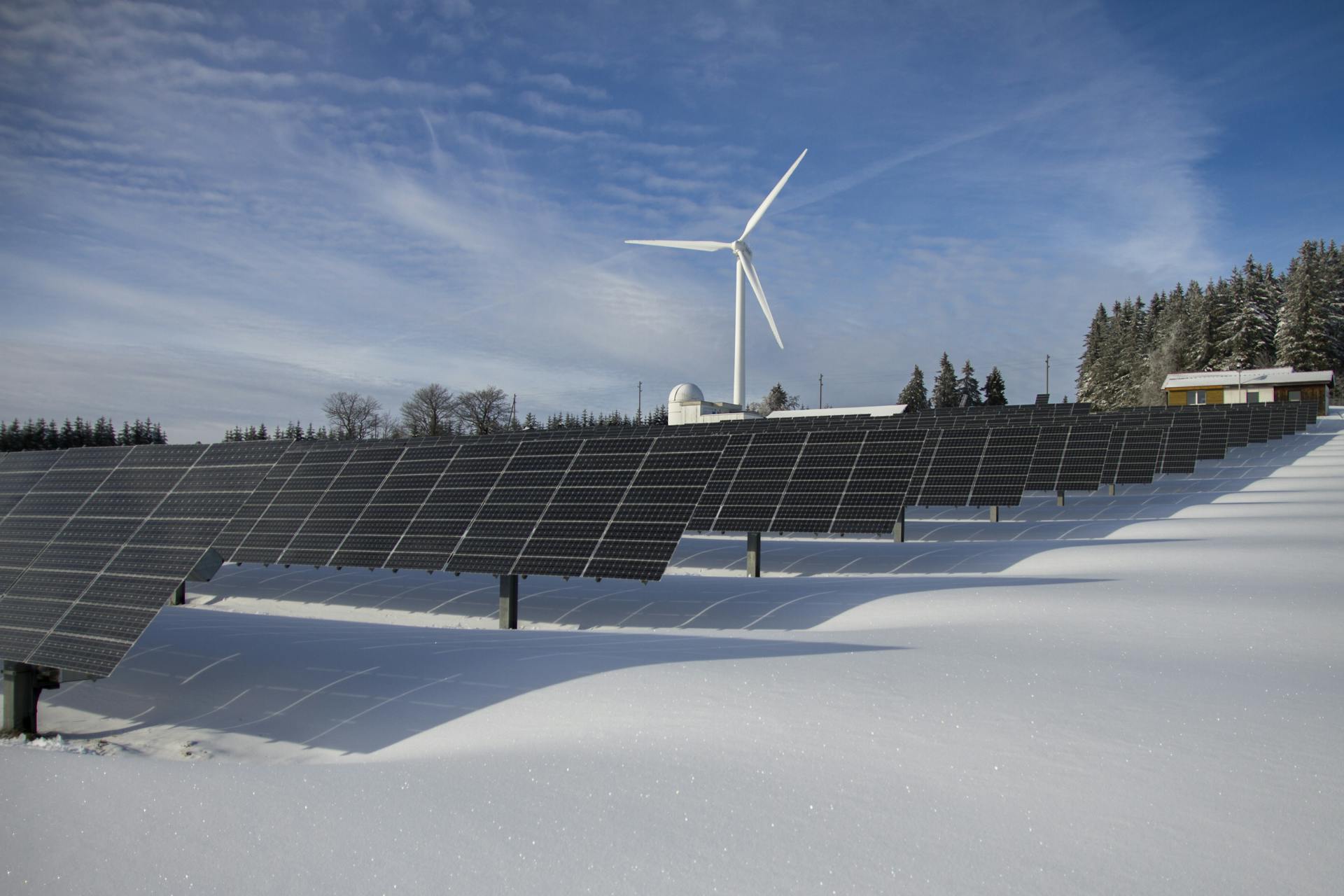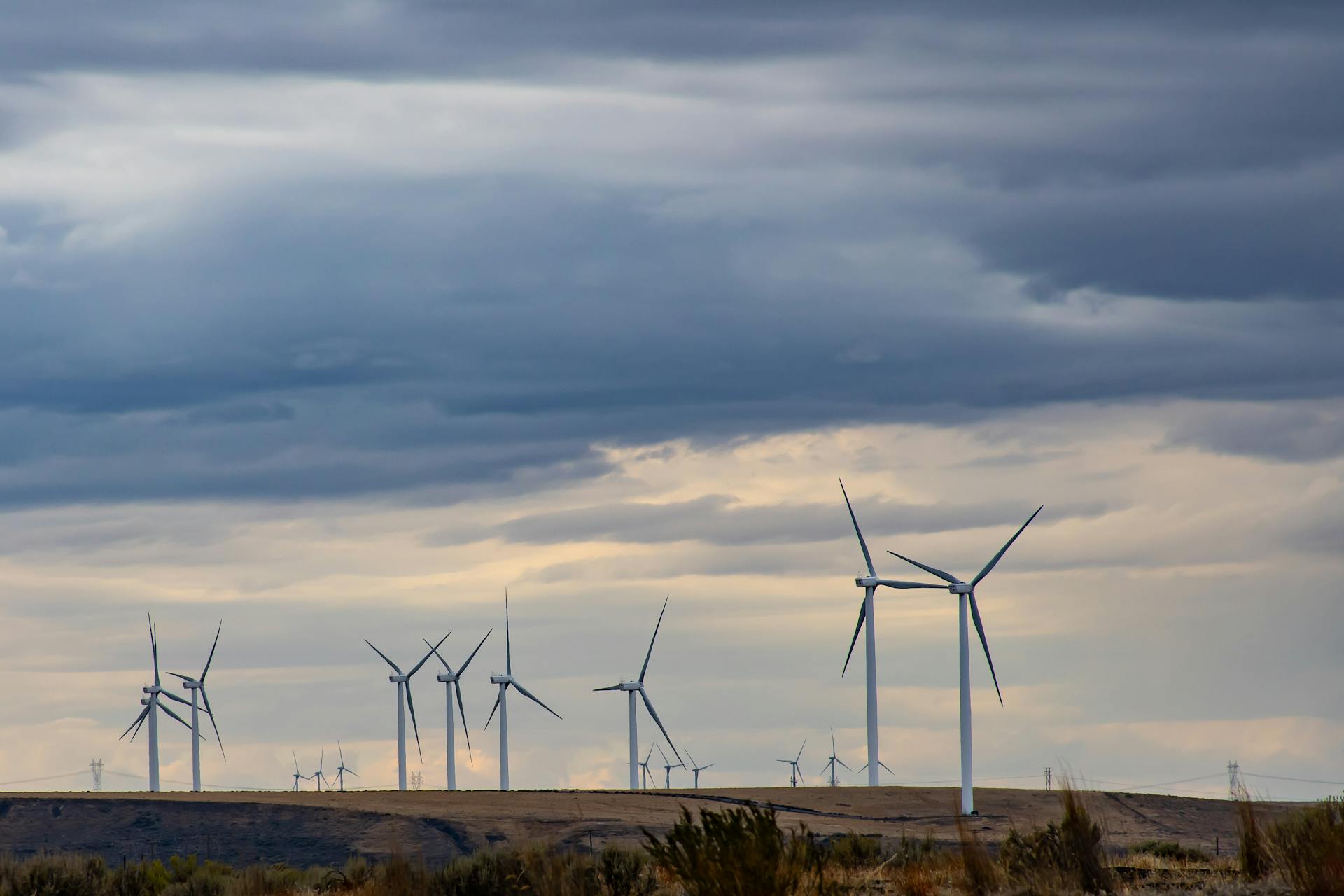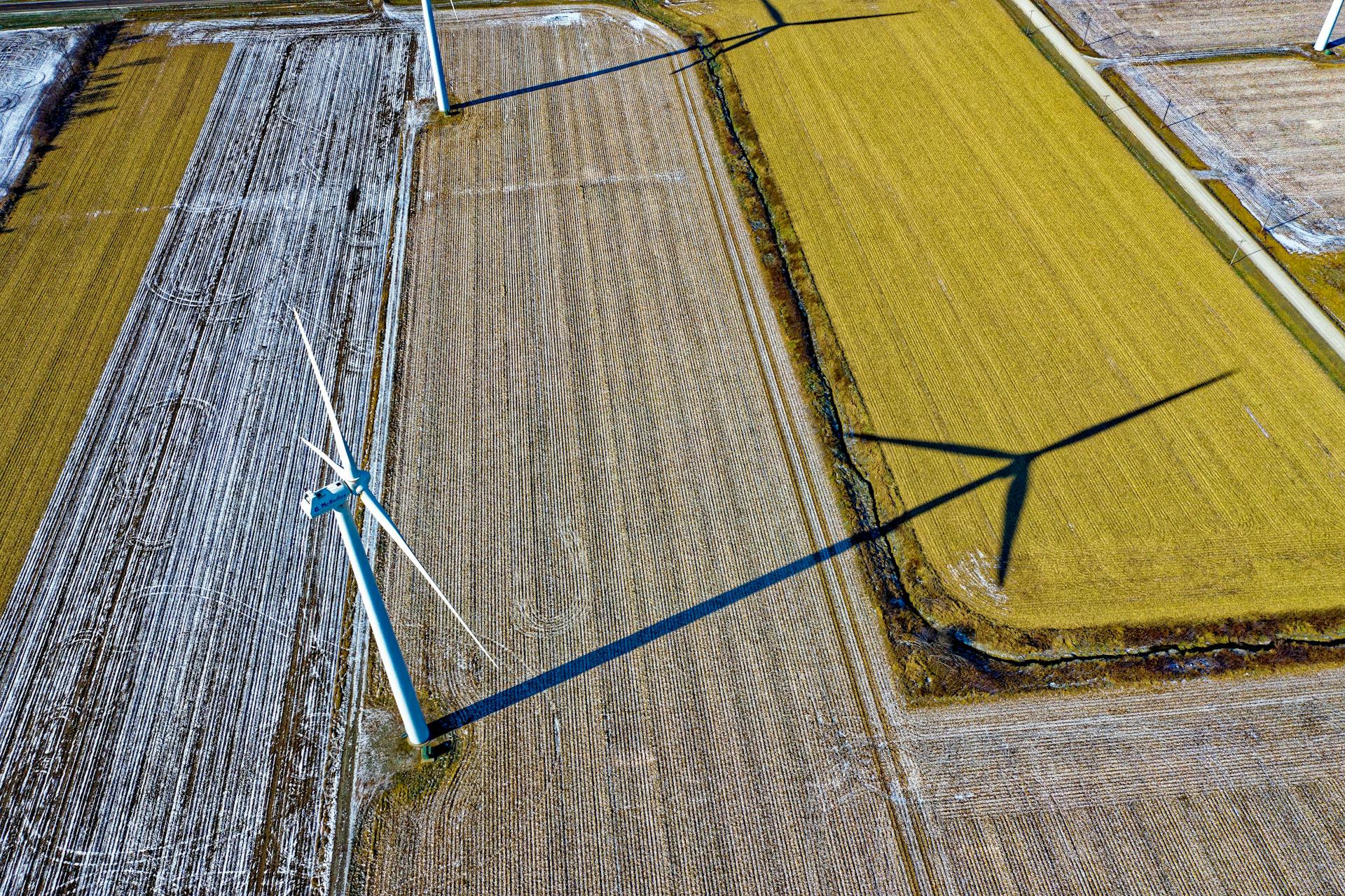
Environmental sustainability is a term that we hear more and more frequently in today's world. But what exactly does it mean? To fully understand environmental sustainability, we must first break down the two words that make up this phrase. The environment refers to our natural surroundings, including the air, water, land, and all living creatures. Sustainability, on the other hand, refers to the ability to maintain or support something over time.
When we talk about environmental sustainability, we are referring to the practice of conserving and protecting our planet's natural resources for future generations. This means using resources in a way that doesn't deplete them and finding ways to minimize waste and pollution. Environmental sustainability is crucial because it ensures that our planet remains habitable for humans and all other species that call it home. In this article, we will explore why environmental sustainability is so important and what steps we can take as individuals to promote it.
The Meaning and Importance of Environmental Sustainability
Environmental sustainability is the concept of maintaining a balance between human activities and the natural environment to ensure the well-being of present and future generations. Our well-being depends on the health of our natural environment, which includes everything from air quality to clean water and healthy ecosystems. Therefore, living sustainably means creating productive harmony with nature by supporting present needs without compromising those of future generations.
Sustainability calls for efficient, wise use of natural resources such as energy, water, and land. It also involves understanding the interdependent relationships within complex ecosystems such as food webs. By embracing sustainable practices in our daily lives, we can contribute to preserving our planet's biodiversity and ensuring that it remains habitable for all life forms. Additionally, environmental sustainability means taking responsibility for our actions and making conscious decisions that minimize negative impacts on the environment.
In conclusion, environmental sustainability is crucial for the survival of our entire planet. The Environmental Protection Agency recognizes this importance by working to protect human health and safeguarding natural resources through its programs and policies. Living sustainably means recognizing that we are part of a larger ecosystem and taking steps to support its health over time. By doing so, we can support a brighter future for ourselves and generations to come while protecting the natural world that sustains us all.
How Does Sustainability Benefit Humanity & the Earth?
Environmental sustainability means protecting and preserving our planet's resources so that life benefits from clean oceans, rivers, aquifers, thriving flora and fauna, drinkable water, and healthy fish. By creating safe places for people to live, we're also conserving water and reducing energy costs. This saves money while reducing greenhouse gas emissions that stabilize global average temperatures. Through this process, we minimize glacial ice melt and slow sea-level rise while stabilizing global temperatures.
Sustainability reduces extreme weather disasters like hurricanes, droughts, wildfires while cutting down on climate refugees. A sustainable world can lessen flooding caused by climate change and slow permafrost thaw to help reduce ocean acidification. Recycling materials makes manageable landfills with reduced pollution; less pollution means animals won't die of plastic ingestion. Sustainability breeds creative innovation in industries such as environmentally friendly tires or dental floss industries.
Biodiverse balanced ecosystems provide a lose access to yet-to-be-discovered medicinal plants that could potentially cure cancer. Whales, elephants, orangutans – awe-inspiring creatures integral parts of their respective ecosystems – have replaced whales in the carbon cycle to maintain breathable air in our healthy oceans and undisturbed forests. Widespread clean energy use will ultimately reduce carbon dioxide in the atmosphere giving us breathable air while mitigating the climate crisis leading to fewer wildfires with less asthma-inducing smoke making our home fit for kids to grow up in!
Speed Up Your Path Towards Sustainability
Explore solutions to speed up your path towards environmental sustainability. There are many ways to move forward, such as reducing waste, conserving energy, and supporting eco-friendly products. With small changes in our daily habits and choices, we can make a big impact on the health of our planet. Let's work together towards a sustainable future.
Discover the Significance of Environmental Sustainability

Environmental sustainability has become a significant topic in recent decades due to the complex environmental and social, and economic challenges that we face today. Climate change presents various damaging impacts such as extreme droughts, strengthening tropical storms, destructive wildfires, and devastating floods. These impacts affect not only individuals but also communities and organizations worldwide. Embracing environmental sustainability is crucial to conserve natural resources for future generations.
Organizations worldwide are launching programs to promote environmental sustainability because it is an essential aspect of corporate social responsibility. By embracing environmental sustainability, organizations can build brand trust and boost customer loyalty while enhancing employee satisfaction. A healthier environment can lead to a more productive workforce with increased morale and better overall health outcomes.
Environmental sustainability isn't just about preserving the planet; it's about ensuring that future generations have access to clean air, water, and natural resources. Through embracing environmental sustainability, we can help reduce our carbon footprint and protect our planet from further damage caused by human activity. It is necessary for everyone to play a role in conserving natural resources for future generations.
Why ESG Matters: Understanding the Importance and Advantages

As consumers become increasingly aware of environmental social and governance concerns, companies that prioritize sustainability are enjoying valuable benefits. A strong ESG proposition can drive business growth by attracting socially conscious investors, reducing operating costs through lower energy and water consumption, and increasing employee satisfaction. Companies that focus on sustainable products and processes can turn decrease employee turnover rates while building social credibility and brand trust.
Moreover, a company's commitment to ESG can prompt government support when it comes to regulations or incentives. By actively managing their impact on the environment and society, companies can work toward long-term financial stability while benefitting communities at large. In fact, studies have shown that companies with strong ESG ratings tend to outperform those with weaker scores in terms of financial performance.
In summary, embracing ESG principles is crucial for businesses seeking to thrive in today's marketplace. Not only does it help reduce costs, increase employee satisfaction, and build brand trust, but it also positions companies to be leaders in their industries while attracting socially responsible investors. Furthermore, a strong commitment to sustainability may lead to government intervention or support at critical times. In short, prioritizing ESG is a win-win situation for businesses looking for long-term success.
The Importance of Environmental Sustainability

Our environment plays a vital role in our human well-being. The forests, parks, beaches, country roads and other natural resources all contribute to the peace connected with our environments health. They are intrinsically linked to our ability to live long and healthy lives. Unfortunately, avoidable environmental factors like excessive energy use and industrial growth have caused directly and indirectly over 1.4 million global human deaths every year.
We all deserve unpolluted air to breathe clean water, and places free from toxic substances. As the global population grows, it's essential to consider the long-term consequences of our actions on earths biodiverse ecosystems. For businesses sustainability means running sustainable practices for securing future growth potential while also ensuring a world where healthy places exist for future generations. Therefore, it's crucial that we all take responsibility for conserving our environment for a more sustainable future!
1. What is environmental sustainability?
Environmental sustainability is about making life choices that don't put unnecessary strain on the living world around us. It's an approach to living that doesn't waste or unnecessarily deplete natural resources, with the aim of preserving the environment for future generations.
Environmental sustainability aims to protect and enhance the quality of human life while also ensuring that we don't harm the planet in the process. It recognizes that our consumerist human culture has a significant impact on the environment and seeks to reduce this impact by encouraging more responsible behaviors. By adopting sustainable practices like recycling, reducing energy consumption, and using eco-friendly products, we can help ensure a healthier planet for generations to come.
2. Why is sustainability important?
Environmental sustainability is crucial for our planet's livable future. With day-rapid population growth, increased farming, and manufacturing leading to greenhouse gas emissions and unsustainable energy food consumption, we must take responsible practices seriously. Businesses and individuals alike must focus on reducing waste, utilizing commercial clean energy options, and paying fair wages to ensure that human-made resources are used ethically and effectively. Our actions today will impact future generations, making sustainability a pressing issue for all.
3. What is a simple definition of environmental sustainability?
In simple terms, environmental sustainability is the concept of using our planet responsibly. It means taking action to avoid depleting natural resources that we rely on for survival, while also ensuring that future generations have the ability to enjoy these same resources.
This requires us to be mindful of how we use energy, water, and other natural resources in our daily lives. We must find ways to reduce waste and pollution, protect wildlife habitats, and work towards a more sustainable future. By taking steps to live sustainably now, we can help ensure that our planet remains healthy and vibrant for generations to come.
4. What are some examples of environmental sustainability?
Environmental sustainability refers to the responsible use and preservation of natural resources for the present and future generations. One of the primary ways that individuals can support environmental sustainability is by adopting a sustainable lifestyle. This can involve switching to reusable products, reducing meat consumption, and minimizing water usage. Additionally, reducing the use of single-use plastics can have a significant impact on the environment.
From a government perspective, effective steps towards environmental sustainability include promoting renewable energy sources and implementing regulations that reduce pollution from warehouses/factories. Corporations also play an essential role in promoting environmental sustainability. They can minimize their carbon footprint by using renewable energy sources and reducing single-use plastics in their operations. Overall, there are numerous examples of how everyone can contribute towards achieving environmental sustainability.
Frequently Asked Questions
What is the relationship between human wellbeing and environmental sustainability?
The relationship between human wellbeing and environmental sustainability is symbiotic, as a healthy environment is essential for the physical, mental and social wellbeing of individuals, while also contributing to the long-term sustainability of our planet.
Is a sustainable future possible?
Yes, a sustainable future is possible if we take collective action to reduce our impact on the environment and prioritize renewable energy sources. It will require significant changes in behavior and policies, but it is achievable with commitment and effort.
What is environmental sustainability?
Environmental sustainability refers to the responsible use and preservation of natural resources to ensure their availability for future generations. It involves reducing our ecological footprint, minimizing waste, and promoting conservation efforts.
What are the benefits of environmental sustainability?
Environmental sustainability benefits include the preservation of natural resources, reduction of pollution and waste, protection of biodiversity, and improved public health. It also promotes economic growth by increasing efficiency and reducing costs for businesses.
What does the phrase environmental sustainability imply why?
Environmental sustainability implies the responsible use and preservation of natural resources to meet the needs of the present without compromising the ability of future generations to meet their own needs. This ensures a healthy planet for all living beings.
Featured Images: pexels.com


